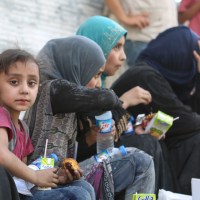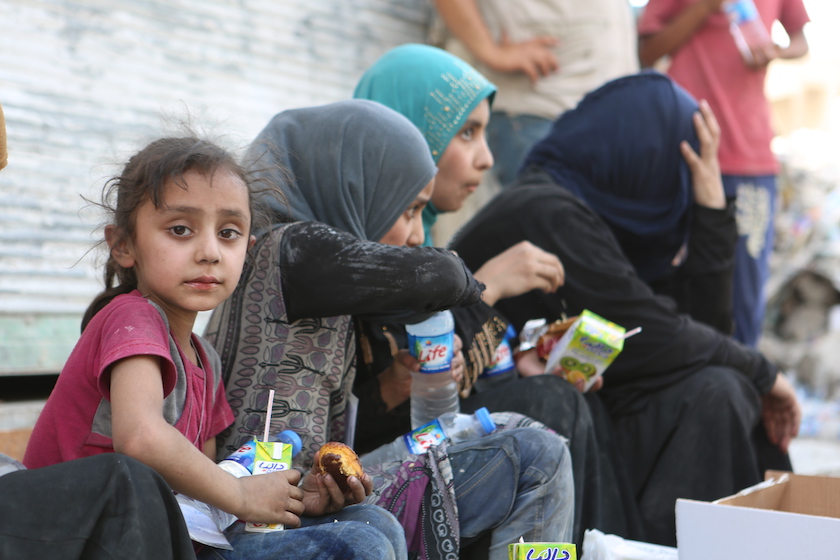The battle for Mosul isn’t done yet, but help is already drying up for displaced families—especially for those who refuse to surrender their sovereignty by moving into the confines of a refugee camp.
According to Rudaw Media Network, UN food provision for displaced Iraqis not living in camps is about to be cut.
“We will not be assisting people outside of the camps,” said Michael Huggins, the UN World Food Programme (WFP) emergency coordinator for Iraq. “And the reason for that is that many of those who are living outside, they have coping strategies. They have access to jobs, they have access to facilities, families.”
Except it’s not that simple. Not even close. A lot of vulnerable families stand to be hurt by the UN’s decision.
As of April 2017, the vast majority of displaced Iraqis lived outside formal camps. And they’re not all equipped to cope with their displacement alone. Some live with relatives or dip into savings to rent housing in other parts of Iraq, often at exorbitant rates. More than 470,000 live in abandoned or unfinished buildings or even disused shipping containers.

Living outside the camps does not mean they are thriving, or even really coping. Nor does it mean that they don’t need help.
Every family, every city, every conflict is different. That’s why you can’t mass-produce aid according to a “one size fits all” formula or demand that poverty look a certain way in order to qualify for help.

But let’s be honest. This decision isn’t about what Iraqi families really need. It’s about funding for the crisis in Iraq drying up. The media and the rest of the world are losing interest. Some humanitarian organizations have already begun leaving Mosul or scaling back their work here. Some officials already declared victory in Mosul—even though the fighting isn’t over—so problem solved, right?
Wrong.
Two out of three displaced families in Iraq are still in danger of not having enough to eat. Up to 80% of west Mosul is destroyed and there are no services here—no clean water, no electricity. In east Mosul, which has been free from ISIS control for months, housing costs have skyrocketed—doubling or even tripling in some cases—because so many homes were destroyed in the fighting.
There are families who chose to stay in Mosul while the battle raged all around them, rather than risking their lives to walk through conflict to reach a refugee camp miles away. And they need help making ends meet while they get back on their feet. Many of those who escaped Mosul’s Old City have been moved to other heavily damaged neighborhoods nearby, because the camps don’t have what they need to serve the people already living there. They didn’t make it to a refugee camp, but that doesn’t mean they need less help.
Why should those who did not—or could not—flee to a displacement camp be punished? Why should they be forgotten?
The world is already turning its back on Mosul, abandoning displaced families at the moment they need us to dig in and stand with them the most.
The wounds of war are not mended in a day. The needs of displaced families do not disappear when the cameras switch off.
That’s why we’re not going anywhere. We’re staying until the battle is done… and then we’ll get down to the hard work of helping our Iraqi friends rebuild. This isn’t the end of the story.
The fact is, others are scaling back because they don’t think you care. They don’t think you have the attention span or the commitment to stay with the people of Iraq. They don’t think you’ll show up after the cameras move on.




